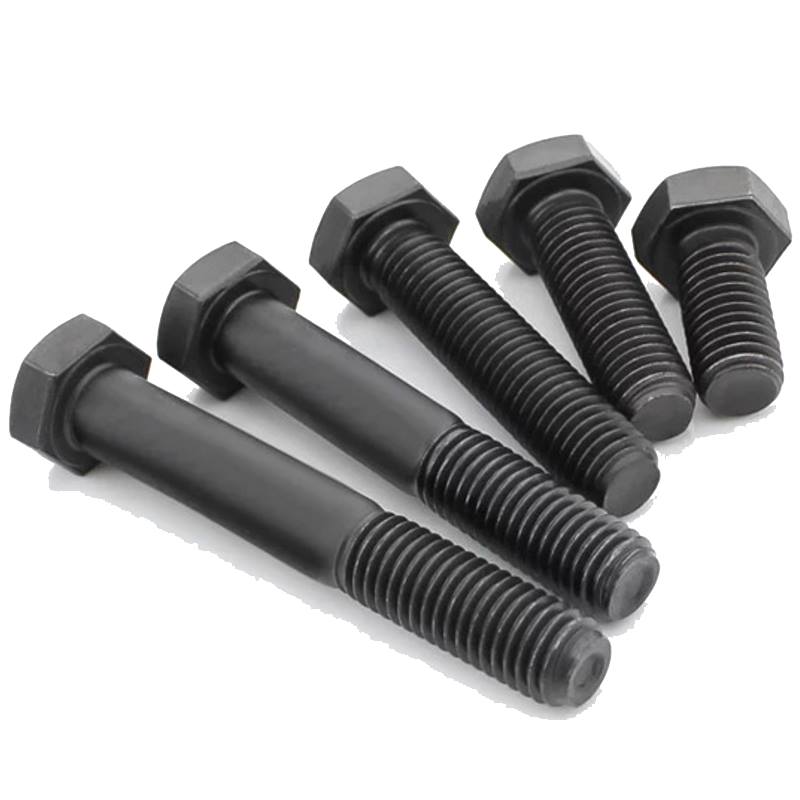Bolt Tightening Solutions from Leading Manufacturers for Enhanced Performance and Durability
Oct . 13, 2024 19:47 Back to list
Bolt Tightening Solutions from Leading Manufacturers for Enhanced Performance and Durability
The Importance of Tightening Bolts A Focus on Manufacturers
In the world of engineering and manufacturing, the significance of properly tightened bolts cannot be overstated. Bolts are fundamental components used to hold machinery and structures together, ensuring stability and safety. However, the process of tightening these bolts is critical not just for functionality but also for the longevity of products and the prevention of catastrophic failures. Thus, the role of bolt manufacturers in providing quality products and guidance on proper tightening techniques is paramount.
Understanding the Basics of Bolt Tightening
When it comes to tightening bolts, a few fundamental principles come into play. The primary goal is to apply the correct amount of torque to achieve a snug fit without over-stressing the bolt or the materials being fastened. This is where the specifications provided by manufacturers come into focus. Bolt grades, for instance, indicate the material and strength characteristics, which in turn dictate the appropriate torque settings during installation. Following these specifications helps in achieving the necessary preload—the initial load that keeps the bolted joint tight under operational conditions.
The Role of Bolt Manufacturers
Bolt manufacturers play a pivotal role in the broader manufacturing ecosystem. They not only produce bolts of varying sizes, materials, and tensile strengths but also provide essential guidance on their application. By ensuring adherence to industry standards, reputable manufacturers contribute immensely to safety and quality assurance. Moreover, they often supply technical documentation, including torque charts, which aid engineers and technicians in applying the right amount of torque during installation.
Manufacturers are also at the forefront of innovation in bolt technology. Advanced materials and coatings have emerged to improve resistance to corrosion and wear, which can significantly affect the longevity and performance of bolted joints. Furthermore, manufacturers continue to invest in research to better understand the mechanics of bolt behavior under various conditions, paving the way for improved tightening practices and tools.
Best Practices for Tightening Bolts
Ensuring that bolts are tightened correctly involves a combination of techniques and best practices. Here are some essential steps recommended by industry experts
tighten bolts manufacturers

1. Use the Right Tools Utilizing calibrated torque wrenches or tensioning tools is crucial. These instruments help achieve the precise torque values specified by the manufacturer.
2. Follow the Manufacturer's Guidelines Always refer to the torque specifications and tightening sequences provided by the bolt manufacturer. These guidelines are based on extensive testing and are vital for maintaining joint integrity.
3. Inspect Bolts Regularly Regular inspection of bolted joints can prevent failures. Look for signs of loosening or wear, and retighten if necessary.
4. Use Lubricants Wisely Applying lubrication can reduce friction and allow for more accurate torque application. However, it’s essential to follow the manufacturer’s recommendations regarding the use of lubricants, as they can affect torque readings.
5. Implement Torque Control Techniques For critical applications, consider using methods such as angle tightening, yield point tightening, or stretch control. These techniques can enhance joint reliability compared to traditional torque methods.
The Future of Bolt Manufacturing
As industries evolve, the future of bolt manufacturing is likely to embrace advanced technologies like automation, smart manufacturing, and new materials. The advent of Industry 4.0 is bringing more precision to manufacturing processes, which can significantly impact bolt production quality. Additionally, as industries increasingly focus on sustainability, manufacturers are exploring eco-friendly materials and production methods.
Conclusion
In summary, proper bolt tightening is crucial in ensuring the safety and functionality of various structures and machinery. Bolt manufacturers are essential partners in this process, providing the necessary products and expertise to ensure that bolts are tightened to the required specifications. By adhering to best practices and leveraging innovative manufacturing techniques, industries can enhance the reliability of their bolted connections, ultimately leading to safer and more durable products. As technology continues to advance, the partnership between manufacturers and end-users will be vital in achieving these goals.
Latest news
-
High-Quality Panel Stud Bolt Reliable Panel Stud Bolt Factory & Suppliers
NewsJul.08,2025
-
High-Precision Fine Thread Locknuts Manufacturer & Supplier Custom Solutions
NewsJul.08,2025
-
PH Imperial Stud Bolt – High Strength Fasteners from Leading Supplier & Factory
NewsJul.07,2025
-
High-Quality Allen Wrench Bolts Leading Factory, Company & Suppliers
NewsJul.07,2025
-
Wholesale Ball Stud Bolt - High Quality Supplier & Factory Price Reliable Wholesale Ball Stud Bolt Company
NewsJul.06,2025
-
High-Strength Alloy Bolts Manufacturer & Supplier Quality Alloy Fasteners Factory
NewsJul.06,2025
